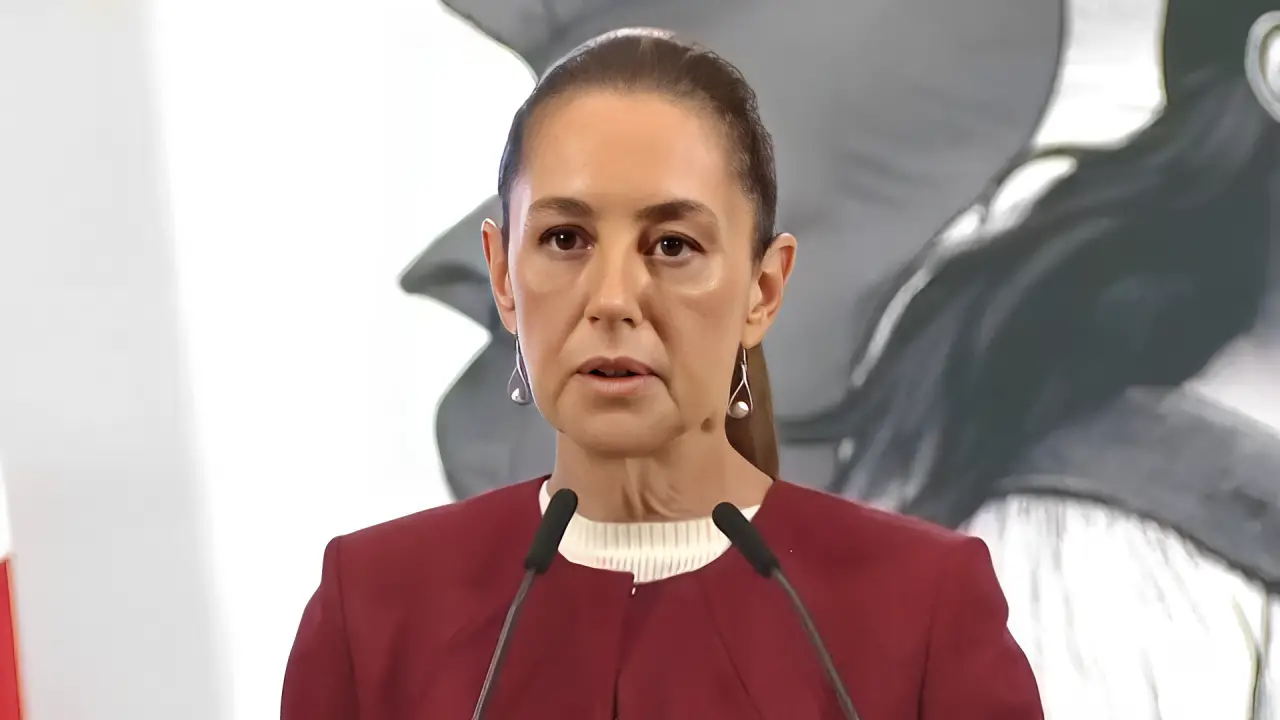Mexican President Claudia Sheinbaum has made her stance clear, stating that “Mexico is not anyone’s piñata.” The statement came amid growing tensions between the two countries over trade disputes. Sheinbaum’s bold remarks have sparked debates not only on the fairness of the U.S. ban but also on the broader implications for international trade and relations between the neighboring countries.
Context of the Ban
The U.S. decision to impose a ban on Mexican beef was triggered by concerns related to food safety standards. The U.S. Department of Agriculture (USDA) expressed concerns about the use of certain growth hormones and antibiotic residues in Mexican beef products, which, according to their regulations, posed a potential risk to consumer health. The U.S. has always had strict standards for beef imports, particularly focusing on residue levels, which led to the ban after months of negotiation between the two countries.
The ban, which took effect earlier this year, has caused significant concern in Mexico, as the U.S. is one of the largest consumers of Mexican beef. The Mexican government views the ban as unjust, arguing that Mexico’s beef industry complies with international standards and that the move is an unjustified trade barrier. Mexico has even expressed concerns that this could be politically motivated, and some critics argue that it represents an attempt to undermine Mexico’s agricultural sector.
Sheinbaum’s Response
In her fiery speech, President Claudia Sheinbaum called the U.S. ban a form of economic bullying. “Mexico is not anyone’s piñata,” Sheinbaum remarked, referring to the way the U.S. has historically used trade measures to leverage power over Mexico. The term “piñata” is a powerful metaphor, often used to describe something that is repeatedly attacked or targeted for someone else’s amusement or gain.
Sheinbaum’s statement is part of a larger narrative within Mexican politics, where the country is pushing back against perceived foreign interference. Over the years, Mexico has increasingly taken a more assertive stance on international matters, especially in light of political tensions with the U.S.
The President’s comments reflect her commitment to protecting Mexico’s agricultural and trade interests. She further emphasized that Mexico would seek alternative markets for its beef, such as expanding trade agreements with countries in Europe and Asia. In her remarks, Sheinbaum also hinted that Mexico may challenge the U.S. ban in international trade forums, asserting that the move violates the principles of fair trade outlined in the World Trade Organization (WTO).
The Bigger Picture: U.S.-Mexico Trade Relations
The beef ban is the latest in a series of trade tensions between the U.S. and Mexico. Over the years, the two countries have had a complex and often contentious trade relationship. Mexico is the U.S.’s third-largest trading partner, and the economic ties between the two countries are deep.
However, the relationship has been fraught with disagreements, from tariffs on steel and aluminium to disputes over immigration policies and the future of the North American Free Trade Agreement (NAFTA), which was replaced by the United States-Mexico-Canada Agreement (USMCA) under former President Donald Trump.
Despite these tensions, Mexico continues to be a key player in the U.S. economy. The country is a major exporter of agricultural products, including beef, and has a robust manufacturing sector that supplies goods to the U.S. market. Given the size and importance of the trade relationship, both countries have a vested interest in ensuring that these disputes do not spiral out of control. However, the beef ban adds another layer of complexity to an already delicate relationship.
Reactions from the Beef Industry
The beef industry in Mexico has expressed strong opposition to the U.S. ban, citing its potential to cause substantial financial losses. Mexico’s beef exports to the U.S. account for a significant portion of the country’s agricultural revenue, and the ban has left many producers feeling vulnerable. With the U.S. market cut off, Mexican beef farmers are now looking for new export opportunities, but finding markets that can absorb such a large volume of beef may prove challenging.

In response to the ban, many farmers have called for greater government support and intervention. Some have urged President Sheinbaum to negotiate directly with U.S. officials to lift the ban, while others suggest that Mexico needs to modernize its agricultural practices to meet global standards. Regardless of the solution, it’s clear that the beef industry in Mexico faces a tough road ahead.
Mexico’s Alternative Markets
As President Sheinbaum indicated, Mexico is already exploring new markets for its beef exports. One potential avenue is Europe, where demand for beef remains strong, especially in countries like the United Kingdom and Germany. Additionally, countries in Asia, such as Japan and South Korea, are becoming more open to importing beef from Mexico. However, it will take time and effort to build the necessary relationships and infrastructure to make these markets viable substitutes for the U.S.
Mexico’s strategy of diversifying its export markets is a long-term solution that may help buffer the economic impact of the ban. However, in the short term, many Mexican farmers are likely to face financial strain as they adjust to the changing landscape.
The Legal and Diplomatic Implications
The U.S. ban on Mexican beef is not only an economic issue but also a legal and diplomatic one. Mexico has already signaled its intent to take the matter to international trade bodies, such as the World Trade Organization (WTO). Mexico claims that the U.S. ban is discriminatory and unjustified, especially since Mexico’s beef production standards are in line with international norms.
The legal process for resolving trade disputes within the WTO can be lengthy, and it remains to be seen whether Mexico will be successful in challenging the U.S. decision. Regardless of the outcome, the dispute underscores the tensions that often arise in international trade, particularly when powerful countries like the U.S. and Mexico are involved.
What’s Next?
As the situation continues to develop, President Sheinbaum’s strong words signal that Mexico will not back down in the face of U.S. trade pressures. The Mexican government has vowed to continue defending its agricultural sector and will explore all possible avenues to secure fair treatment in international markets. While the U.S. may view its actions as necessary for protecting its consumers, Mexico sees the ban as an infringement on its sovereignty and a violation of fair trade practices.
Further diplomatic and legal efforts to resolve this issue will likely occur in the coming months, but for now, Mexico seems likely to continue asserting its position. As Sheinbaum said, “Mexico is not anyone’s piñata,” and the country will fight back against what it perceives as unjust trade practices.
Disclaimer: This article has been meticulously fact-checked by our team to ensure accuracy and uphold transparency. We strive to deliver trustworthy and dependable content to our readers.




